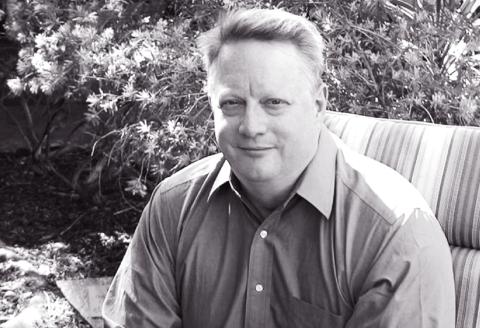迷之自信打哪儿来?
2018-05-22ByKateFehlhaber
By Kate Fehlhaber

One day in 1995, a large, heavy middle-aged man robbed two Pittsburgh banks in broad daylight. He didnt wear a mask or any sort of disguise. And he smiled at surveillance cameras before walking out of each bank. Later that night, police arrested a surprised McArthur Wheeler. When they showed him the surveillance tapes, Wheeler stared in disbelief. “But I wore the juice,” he mumbled. Apparently, Wheeler thought that rubbing lemon juice on his skin would render him invisible to videotape cameras. After all, lemon juice is used as invisible ink so, as long as he didnt come near a heat source, he should have been completely invisible.
Police concluded that Wheeler was not crazy or on drugs—just incredibly mistaken.
The saga2 caught the eye of the psychologist David Dunning at Cornell University, who enlisted his graduate student, Justin Kruger, to see what was going on. They reasoned that, while almost everyone holds favourable views of their abilities in various social and intellectual domains, some people mistakenly assess their abilities as being much higher than they actually are. This“illusion of confidence” is now called the “DunningKruger effect”, and describes the cognitive bias to inflate self-assessment.
To investigate this phenomenon in the lab, Dunning and Kruger designed some clever experiments. In one study, they asked undergraduate students a series of questions about grammar, logic and jokes, and then asked each student to estimate his or her score overall, as well as their relative rank compared to the other students. Interestingly, students who scored the lowest in these cognitive tasks always overestimated how well they did—by a lot. Students who scored in the bottom quartile3 estimated that they had performed better than two-thirds of the other students!

This “illusion of confidence” extends beyond the classroom and permeates everyday life. In a follow-up study, Dunning and Kruger left the lab and went to a gun range, where they quizzed gun hobbyists about gun safety. Similar to their previous findings, those who answered the fewest questions correctly wildly overestimated their knowledge about firearms. Outside of factual knowledge, though, the Dunning-Kruger effect can also be observed in peoples self-assessment of a myriad4 of other personal abilities. If you watch any talent show on television today, you will see the shock on the faces of contestants who dont make it past auditions5 and are rejected by the judges. While it is almost comical to us, these people are genuinely unaware of how much they have been misled by their illusory superiority.
Sure, its typical for people to overestimate their abilities. One study found that 80 per cent of drivers rate themselves as above average—a statistical impossibility. And similar trends have been found when people rate their relative popularity and cognitive abilities. The problem is that when people are incompetent, not only do they reach wrong conclusions and make unfortunate choices but, also, they are robbed of the ability to realise their mistakes. Instead of being confused, perplexed or thoughtful about their erroneous ways, incompetent people insist that their ways are correct. As Charles Darwin wrote in The Descent of Man(1871): “Ignorance more frequently begets confidence than does knowledge.”6
Interestingly, really smart people also fail to accurately self-assess their abilities. As much as D- and F-grade students overestimate their abilities, A-grade students underestimate theirs. In their classic study, Dunning and Kruger found that high-performing students, whose cognitive scores were in the top quartile, underestimated their relative competence. These students presumed that if these cognitive tasks were easy for them, then they must be just as easy or even easier for everyone else. This so-called “imposter7 syndrome” can be likened to the inverse of the Dunning-Kruger effect, whereby high achievers fail to recognise their talents and think that others are equally competent. The difference is that competent people can and do adjust their self-assessment given appropriate feedback, while incompetent individuals cannot.
And therein lies the key to not ending up like the witless8 bank robber. Sometimes we try things that lead to favourable outcomes, but other times—like the lemon juice idea—our approaches are imperfect, irrational, inept or just plain stupid. The trick is to not be fooled by illusions of superiority and to learn to accurately reevaluate our competence. After all, as Confucius reportedly said, real knowledge is knowing the extent of ones ignorance.
1995年的一天,一名體格粗壮的中年男子在光天化日之下抢劫了两间匹兹堡的银行。他没有戴口罩或是进行任何伪装,而且在走出每间银行之前,他还朝着监控摄像头微笑了一下。当天晚上,警方逮捕了一个名叫麦克阿瑟·惠勒的嫌犯,被捕时他一脸惊讶。当警方向他展示监控录像时,惠勒难以置信地瞪大了眼睛。“但是我涂了果汁呀,”他嘟哝道。显然,惠勒认为在皮肤上擦了柠檬汁,摄像头就拍不着他了。毕竟,柠檬汁被用作隐形墨水,因此只要他不靠近热源,他应该是完全隐形的才对。
警方得出的结论是:惠勒脑子没有问题也没有嗑药,只是彻底弄错了。
这个传奇般的故事引起了康奈尔大学心理学家戴维·邓宁的注意,他和研究生贾斯汀·克鲁格一同对这一现象进行研究。他们认为,虽然几乎每个人都认为自己在社会和智力各个领域的能力表现不俗,但有些人明显高估了自己的实际能力。这种“自信的幻觉”如今被称作“邓宁-克鲁格效应”,指的是自我评估时高估自己的认知偏差。
为了在实验室研究这一现象,邓宁和克鲁格设计了一些巧妙的实验。在一项研究中,他们向本科生提了一系列关于语法、逻辑和笑话的问题,然后要求每个学生估计自己的总体成绩,以及自己与其他学生的相对排名。有趣的是,那些在认知测试中得分最低的学生总是高估自己——而且高估了不止一点点。得分排在后四分之一的学生估计自己的成绩比其他三分之二的学生还要好!
这种“自信的幻觉”不只存在于课堂,而且渗透到了日常生活中。在一个后续的研究中,邓宁和克鲁格离开实验室去了一个靶场,在那里他们对射击爱好者进行了枪械安全知识的测试。与他们之前的研究结果类似,那些正确率最低的人远远高估了自己对枪支的认识。除了事实性知识之外,邓宁-克鲁格效应也可以在人们对其他各种个人能力的自我评估中观察到。现如今,如果你在电视上看场选秀节目,你就会看到那些没通过海选、被评委拒绝的选手脸上震惊的表情。虽然在我们看来这些人的表现近乎滑稽,但他们真的不知道自己在多大程度上是被优越感的幻觉误导了。
当然,人们总是会高估自己的能力。一项研究发现,80%的司机认为自己可以超过平均水平—— 这在统计学上是不可能的。人们在评价自己的相对受欢迎程度和认知能力时,研究结果也显示出了类似的趋势。问题是有些人能力不行,他们不但会得出错误的结论,作出糟糕的选择,而且他们也没有能力去认识到自己的错误。对于自身的错误,无能的人不会感到迷茫、困惑或是静下心思考,他们总是坚持自己是对的。查尔斯·达尔文在《人类的起源与性的选择》(1871)中写道:“无知比博学更容易带来自信。”

有趣的是,真正聪明的人也无法准确地评估自己的能力。正如得分为D和F的学生会高估自身能力,得A的学生则会低估自身能力。邓宁和克鲁格在其经典的研究中发现,认知分数排在前四分之一的优秀学生低估了自己的相对能力。这些学生认为,如果这些认知測试对他们来说很容易,那么对其他人而言肯定也一样简单,甚至更简单。这一所谓的“冒名者综合征”可以说是反过来的邓宁-克鲁格效应:优秀的人无法认识到自己的才能,认为其他人同样能干。不同的是,在得到适当的反馈后,有能力的人可以而且确实会在自我评估方面作出调整,而无能的人却不能。
这里就是让我们不会变成那个蠢蛋银行劫匪的关键。有些时候我们尝试会带来有利结果的事情,但是其他时候——比如涂柠檬汁那个主意——我们的方法是有缺陷的、不理性的、笨拙的或者根本就是愚蠢透了的。诀窍在于不要被优越感的幻觉所蒙蔽,并且学会准确地重新评估我们的能力。毕竟,正如孔子所说,“知之为知之,不知为不知,是知也”。
1. know-it-all: 自称无所不知的人。
2. saga: 传说,长篇故事,此处指事件。
3. quartile: 四分位数(的)。
4. myriad: 大量,无数。
5. audition: 试镜,海选。
6. The Descent of Man: 《人类的起源》全名为《人类的起源与性的选择》(The Descent of Man, and Selection in Relation to Sex),该书从各个方面以无可反驳的事实和论据阐述了人类是从猿类进化而来的,同时详细地论述了性选择的问题;beget: 产生,引起。
7. imposter: 冒名顶替的人。“冒名者综合征”又称“负担综合征”,指优秀的人内心深处缺乏自信,觉得自己并不像别人想得那么好,优秀的成就也是一时骗来的,不会长久,自己只是冒牌货,时时担心会被拆穿,深受自卑感折磨。
8. witless: 愚蠢的。
阅读感评
∷秋叶 评
我们常说“无知者无畏”。此言出自孔子,他说“君子有三畏,畏天命,畏大人,畏圣人之言”,而“小人”对于以上全然不知,因此全报以“不畏”与“轻蔑”,了无羁绊。达尔文(Charles Darwin, 1809—1882)也有类似的说法:“Ignorance more frequently begets confidence than does knowledge.”(无知比博学更容易带来自信)。我想,这位“进化论”的伟大奠基人一定是认为博学之人较为审慎多虑,而所知甚少者往往莽撞不羁。“无知者无畏”心态在前些年京味小说家王朔接连大骂鲁迅、老舍等经典作家的事件中得到了淋漓尽致的展现。我们不能否认“无知者无畏”心态有其突破陈规、不畏缩的优势,但其结局往往是灾难性的。一百多年前的“义和团”运动,拳民们大多为山东、河北农民,对于西洋除了仇恨外所知甚少,却固执地认定洋人的膝盖不能弯曲,战力有限,而吹嘘自己神功广大,刀枪不入,不惧任何洋枪洋炮。他们作战时采取人海战术,确为勇往无畏,但结果是数万人数月围攻区区几百人防守的外国使馆区而久攻不下,一朝面对八国联军即瞬间战败,北京城也惨遭生灵涂炭。
然而,我们在日常生活中发现,完全“无知者”往往表现为胆怯、保守、举步维艰,而往往是那些所谓的“半瓶子晃荡”的浅尝辄止者夸夸其谈、自吹自擂,俨然以专家自居。西谚中也有类似的说法:“A little knowledge (learning) is a dangerous thing.”(一知半解是一件危险的事情)。该谚源自18世纪英国诗人蒲伯(Alexander Pope, 1688—1744)的名诗《论批评》(“An Essay on Criticism”, 1709),首节即妙语连珠:“一知半解是一件危险的事情/派利亚泉水(Pierian spring)要深吸,否则别饮/浅浅喝几口使大脑不清,/大量畅饮反会使我们清醒。”这些诗行针对的似乎就是本文中的那位窃贼,以为银行监控对于他的“柠檬水蒙面”无能为力,其自作聪明的结局当然是当天就束手就擒!
心理学上的邓宁-克鲁格效应认定“高估自我”乃人之常情,这认知上的偏差恰如人性的弱点,不可避免。原文所举例证皆来自现实,诸如班上成绩居末的学生自以为能力在中等之上;那些枪支爱好者虽答不上几个有关武器安全方面的问题,却自认为有着丰富的枪械知识;大多数司机都认为自己车技出众;那些连电视海选都上不了榜的业余歌手,一旦被裁判为出局,第一反应不是自己才艺能力问题,而是裁判的不公!这些虚幻而盲目的自信的例子确实存在,但笔者认为还有两类人的自我认知偏差更具隐蔽性与欺骗性。一种可称之为假行家(charlatan),不管谈什么都以权威自居,对于一些文献来源与调查数据说一不二,盛气凌人,俨然只有他/她才掌握这绝对真理。这种人并非完全无知,但往往能力有限,只是表演的功夫了得,用狂妄来掩盖自己学识浅薄。据说,英国哲学家培根(Francis Bacon)早就有言:“That a little knowledge is apt to puff up, and make men giddy, but a greater share of it will set them right, and bring them to low and humble thoughts of themselves.”(知识浅薄让人内心膨胀,头脑发昏。深入下去将让他们摆正位置,有自知之明)。看来,人之谦虚是下苦功的结果!英文中有个现成词“A Know-Nothing Know-It-All”,用来形容这种“半瓶水”显摆、“缺乏教养”之流再合适不过。另一种人倒是有些自知之明,并不自诩为权威,而是坦言自己为“草根”,但他们抓住一点不及其余地宣称专家权威的不可靠,甚至从根本上否认他们的存在,要大家认同“只有草根才值得崇尚,只有草根的意见才是真正可靠的”等观点。这貌似在高举自由主义、平等主义大旗,其实是在不切实际地高估“草根”自我的能力与作用。具有反讽意味的是,他们在论述这些观点时,往往自觉不自觉地会抬出一些理论家来为自己撑腰。这种人貌似谦虚,实则傲慢,因为他们把自己的观点强加于人,而且出尔反尔。当然,专家与权威均可质疑,这是学术常识,也是我们应持的态度,但不宜全盘否定,更不能强行予以“扫地出门”。总之,不管是无知者还是“半瓶水”,还是要多一点谦逊与自知之明,少一点固执与自以为是。《圣经》的《罗马书》上有一句格言说得好:“Professing themselves to be wise, they became fools.”(Romans 1:22 自认聪明,实为傻子)。
